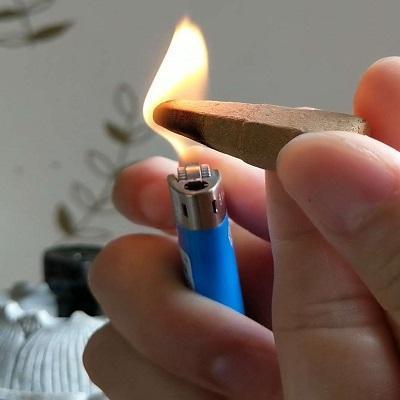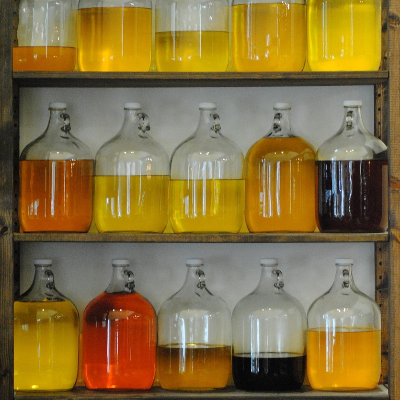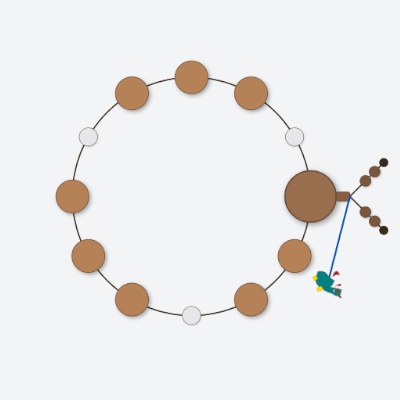Menu
-
-
F.A.Q
- How to identify genuine agarwood chip, natural or cultivated
- How to identify oil injection / absorption fake agarwood beads
- How to know if there are more than one oil in your oil
- How to make your wood bracelet or mala darker
- How to tell if an Agarwood bead sinks WITHOUT sinking it under water?
- How does back flow incense work and how do you burn it?
- Where to start if you don't know what agarwood is ?
- Why are you losing money if you buy seeds and plants?
- Which agarwood incense should I choose?
- Frequently Asked Questions
- Agarwood Related Articles
- Shipping
-
SHOP - Agarwood
-
SHOP - Other Fragrant Wood
-
SHOP - Incense Holder and Burner
-
- FREE Oud Oil guide
- Testimonials
- "Why did you buy this?"
- Contact us
- About Us
- +61430284329
- Login
-
English


How does back flow incense work and how do you burn it?
Updated 25/11/2025
Table of Contents: [hide]
Before we delve into the physics of backflow incense, here is something you rarely see on an incense blog: an interactive backflow incense visualiser. It demonstrates exactly how the smoke moves inside a hollow cone, why it sinks instead of rising, and how the backflow effect is created.
Should smoke rise or sink?
Have you ever wondered why the smoke from backflow incense sinks? Smoke should rise, should it not?
At first, I was puzzled as well, until I discovered the mechanism that makes it appear as if it has defied physics. You might already know this, but since I have received questions from several customers, I thought it would be beneficial to share this information with everyone here.
The structure of a cone incense
Cone vs stick incense
Physically, cone incenses differ significantly from stick (cylinder) incenses.
The composition of stick incense is evenly distributed. Therefore, once it is lit, its burn time remains stable from top to bottom. Depending on the manufacturer, its weight and size may vary. The example below is from our Grandawood incense, which weighs 0.14g per stick.

Cone incense is different. Per cone shape, the weight is 1.97g. The "fuel" (incense content) is 14 times greater than that of the stick.

So, what happens when you light the cone incense?
Have you experienced the cone incense extinguishing midway through burning? If so, please read on.
How to light an incense cone
In this example only, we will divide the cone incense into four parts as shown below.

The secret is to ensure Part 1 is fully engulfed in flame first before putting it out, leaving the incense to smoulder without an active fire.

Tilt the incense down to increase the burn area and ensure the incense is lit with an intense flame. Wait for 5 to 10 seconds before extinguishing the fire. If, for any reason, your cone incense goes out, re-light it with care and watch your fingers. If it is unsafe to light the incense because it is too short, please use a multi-purpose lighter with a long wand.

The image below shows the perfectly lit cone.

Do you see the downflow smoke which only occurs halfway through the burning process?


If you set it up correctly, the incense will burn completely without waste, like the example below.

So, how does backflow incense work?
In general, smoke from combustion (caused by heat) will rise because hot air is less dense than cool air.
To make smoke descend, an absence of upward convection is required. The animation below demonstrates this point.
- The bottle acts as a cone incense.
- The paper roll acts as a passage of smoke for the cone incense.

As you can see, from the flame (the heat source), the smoke rises. However, as the smoke travels into the bottle, which has no warm air inside, it sinks. This event happens precisely inside the cone incense.

I apologise for the hand-drawn diagram. However, the backflow smoke can be explained per the picture above, using the principle of Atmospheric Pressure (Air Pressure) which we learned in high school.
First, let us have a quick look at the structure of the cone.
The 3.5cm cone-shaped incense is mainly solid with a small hollow passage of 2cm depth.


The depth of the hollow part is approximately halfway through the incense. It means the backflow effect will only occur when the cone is burnt at least to the number 3 mark.
When lit, the flame will cover Part 1 and some of Section 2. During this time, the smoke will rise because the heated air is less dense than the surrounding air. The hot air is lighter than cold air, which pushes the smoke upward (as Part 1 and 2 of the cone are still solid).
When Part 2 burns completely, the hollow (Part 3) reveals itself. THIS IS WHEN THE BACKFLOW starts happening.


The air pressure has continuously been pushing down. As there is a hollow part which allows the smoke to pass through, it causes the smoke to flow backward (downward).
This "downflow" (backflow) smoke will rise if it is disturbed by wind or movement.
You need to ensure the hole of the cone incense is in line with the hole of the incense holder to see the full backflow smoke effect.
There are many different types of cone incenses in the market, which all possess the backflow effect. Below is our agarwood backflow incense.
3 Responses
Wendy
July 11, 2020
I like this article, super well explained. I just have one serious question, why backflow incense cones are so small, I would love cones that last for hours!!
shere
December 03, 2019
My incense burner has the right hole for the waterfall to happen, but the hole also goes all the way to the bottom. Most of my waterfall goes to the bottom and does not come out. Any suggestions?
Leave a comment
Comments will be approved before showing up.
Also in News

What is Tasbih? The Deep Meaning of Subhan Allah and the Role of Prayer Beads
November 09, 2025 4 min read




Karl
November 12, 2022
Just a small note, it is important to note that the reason air pressure CAN push the smoke downward is that the ash at the top of the cone is porous.